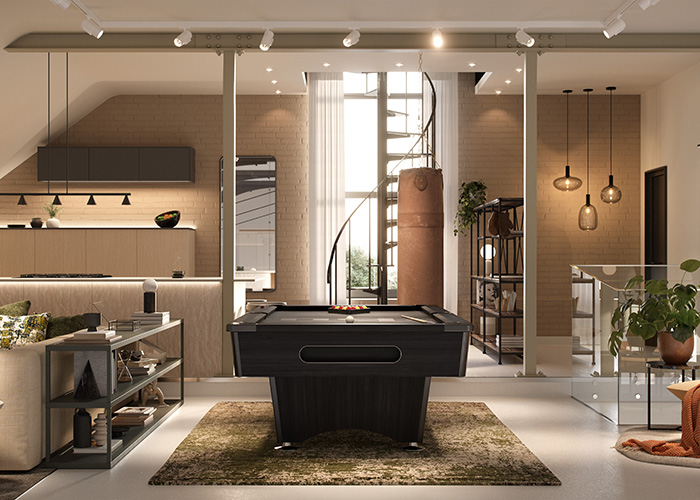The Hotelization of the Workplace with Franky Rousell
We saw Franky’s strong opinion on the Hotelization of the Workplace on LinkedIn and were intrigued to learn more about her thoughts. We reached out to Franky Rousell, CEO and Founder of Jolie Studio, to find out more about the how Hotelization of the Workplace is impacting workplace design and how it is traced back to the tech industry. We’re also thrilled to announce that Franky is a Design Insider Ambassador! You can find out more about Franky and Jolie Studio on our Ambassadors page.

Please could you introduce yourself and Jolie Studio?
I’m Franky, Founder & CEO of Jolie Studio. I studied Architectural Technology before working for commercial property developer Bruntwood as Head of Design. During that time I met many business owners who were looking for a greater return from their office fit-out. Rather than a nice looking environment, they wanted tangible results such as staff wellbeing, attraction and retention rates.
This piqued my interest into what it truly takes to make an environment “successful”.
I set up Jolie in 2017 to disrupt the interiors market and change how commercial spaces are conceived & designed. We are a full-service interior design studio working on offices, amenities hotels and commercial spaces. We focus on timeless, sustainable design and create spaces that enrich lives and enhance performance.
We believe that interior architecture doesn’t only deal with materials and colours; but also with people, emotions, environments and spaces.
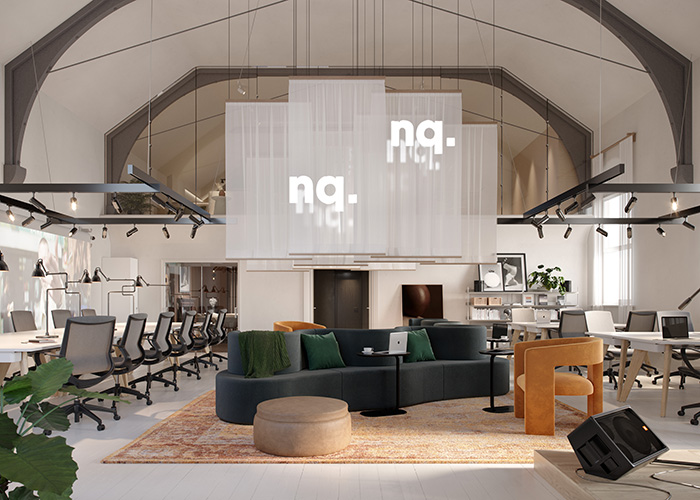
How did the hotelization of the workplace begin?
We could trace it to the tech sector perhaps; well-travelled CEO’s traverse the globe to pitch and raise – working from some of the world’s most beautiful hotel lobbies. These environments certainly raise the bar for the typical working day; and the immense benefits this sense of comfort could bring to a team in terms of productivity, morale, wellbeing, and growth.
Furthermore – post pandemic, the office has needed to become a destination with a purpose. The “hotelization” of office space imports some of the home comforts that we’ve become used to during our time working from home.
Relaxed dress codes, planting and soft furnishings – hotel and hospitality design provides a taste of luxury from home – a feeling of “escape” and freedom, which speaks to our millennials who are set to form 75% of our workforces by 2025.
This brings people together for collaboration, but also provides a sense of pride & exclusivity with a private members club feel.
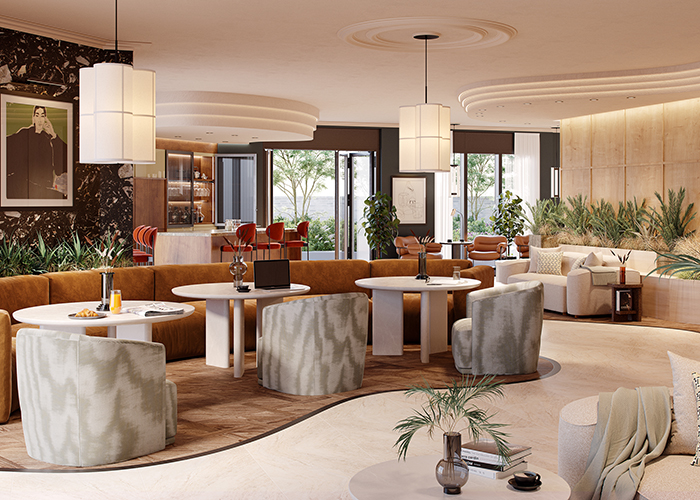
How does this differ from bringing a domestic ‘home from home’ feel into workplace design?
Similar to the added level of service seen in our hotel lobbies globally, we are seeking a sense of elevation and exclusivity alongside the more hotel inspired interior design choices and comforts – this is delivered through access to private amenities and facilities; either managed by developers or operators.
The amenity offerings available to businesses are considered part of the wider draw beyond the four walls of tenanted spaces; providing collaborative shared areas in which businesses can connect and form meaningful relationships outside of their own workforces, through mixing with other tenants and truly collaborating is key here.
From a social sustainability perspective, these spaces are building communities – this is fundamental to the success of these spaces, and is something to be embraced rather than feared.
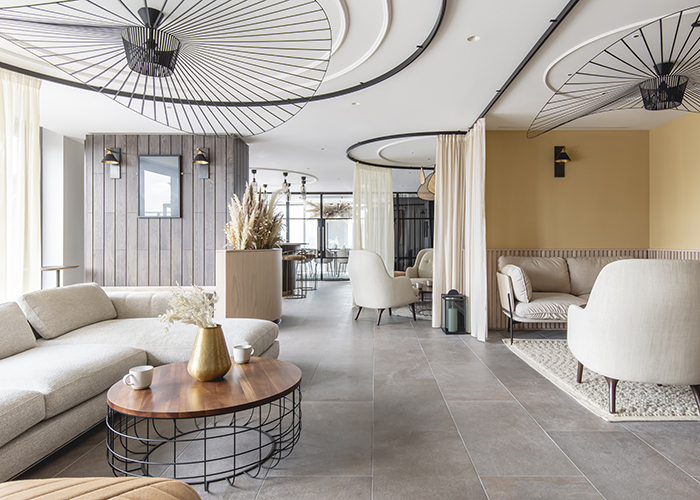
How can this be traced back to the tech industry?
We see deep research conducted in this industry to create incredible, rapid selling products. We consume these products and take our cultural cues from them – as a result, tech filters into all areas of our lives – from our Monzo cards funding the latest splurge, to the office Slack channel connecting us when working remotely.
So, it’s natural that we look to tech workplaces for a cue on what brilliant young minds need to achieve peak mental performance.
Our tech CEOs are having to think fast on their feet when it comes to innovative ways to satisfy their workforces.
These fast-growth high-pressure companies experience frequent challenges around staff burnout, and lack of community and connection amongst their workforces – and our innovative CEOs have the budgets, courage and vision to try something new to combat this.
Investing in the working environment has the power to reshape business dynamics for the better.
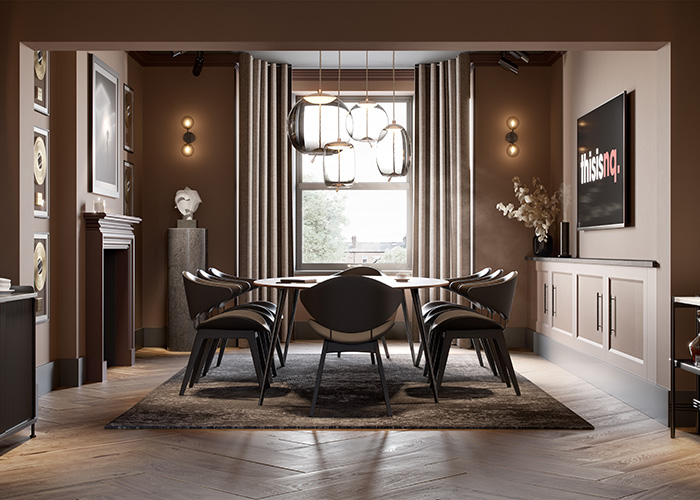
What elements from the hospitality sector are being migrated into the workplace?
Shared amenity spaces such as leisure offerings- from gyms to swimming pools, food and beverage operators, “members” lounges and cultural bolt-ons such as cinemas and galleries, provide everything that the time poor workforce of the future look for to maximize the time spent in their working location on the average 3 out of 5 days they spend in them.
The vast, unoccupied reception lobbies of old are getting transformed into soulful experience-led concierge services with blended retail and coffee shop work settings.
We are seeing a rise in the recruitment of community managers, to support the environment with that extra level of service to tenants – organising events to build business relationships and community – and providing service to employees from dry cleaning, uber ordering or bicycle repairs.
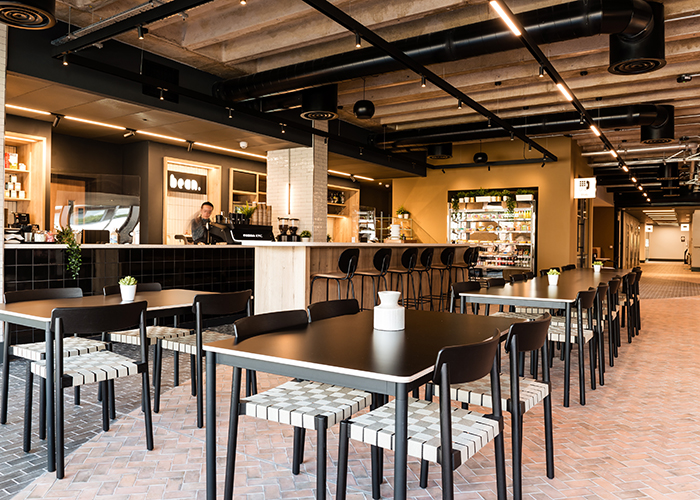
How can the hotelization of the workplace impact employee wellbeing?
At Jolie we work alongside office developers and tenants to identify meaningful amenity offerings that truly support human beings and performance.
We take into account “ESG” guidelines and “WELL” building standards, and translate what these really mean to our employees, and what they need to achieve peak mental performance in their
working day and beyond.
This helps designers to shape spaces that support nourishment, rest, creativity, learning, exercise and social. These elements form the basis of a healthy mind, which we feel is the fundamental starting point when focusing on employee wellbeing. Wellbeing goes beyond running clubs and sit-stand desks – the spaces we create can offer different experiences throughout all hours of the day depending on what our employees need from one moment to the next.
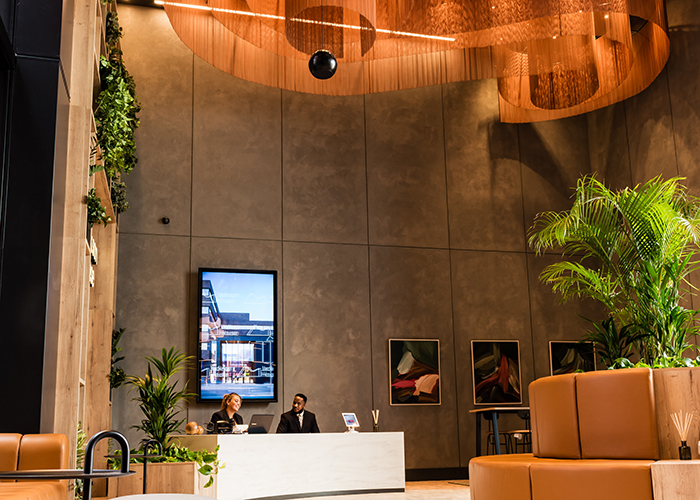
What will be the next impact of the tech industry on the hospitality and workplace sectors?
“WellTech” rolls off the tongue in Silicon Valley – we have recently seen $2.2 Billion worth of investments in WellTech startups followed by a growing $4.2 Trillion Wellness industry.
Well-tech is the collision of wellbeing and technology, the focus has shifted onto peak mental performance from physical body health.
From data capture mattresses that monitor our sleep performance (Eight sleep), to super brain food supplements providing us with grab and go mental supercharging options (Heights), – this new wellbeing movement promotes a drive for continuous improvement.
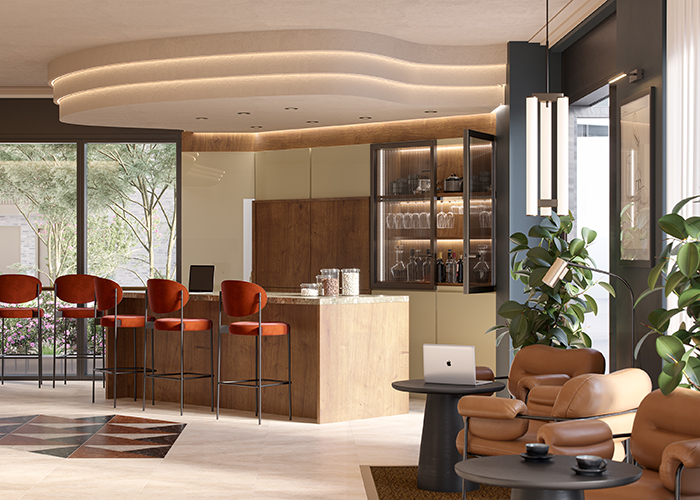
This resonates with our workforces who strive to excel in their career – so we are designing environments with this movement in mind – blending technology, data and innovative amenity offerings into soulful human-centered experiences.
With the psychological impact of the pandemic likely to linger for years, self-care is not a luxury but a public health necessity. With an increased appreciation for the power of technology and science that it took to tackle the pandemic, we are seeing a shift away from the cliche hippy, nomadic, yogi vibe we associate with wellness, into more of a clean, science-driven approach.
